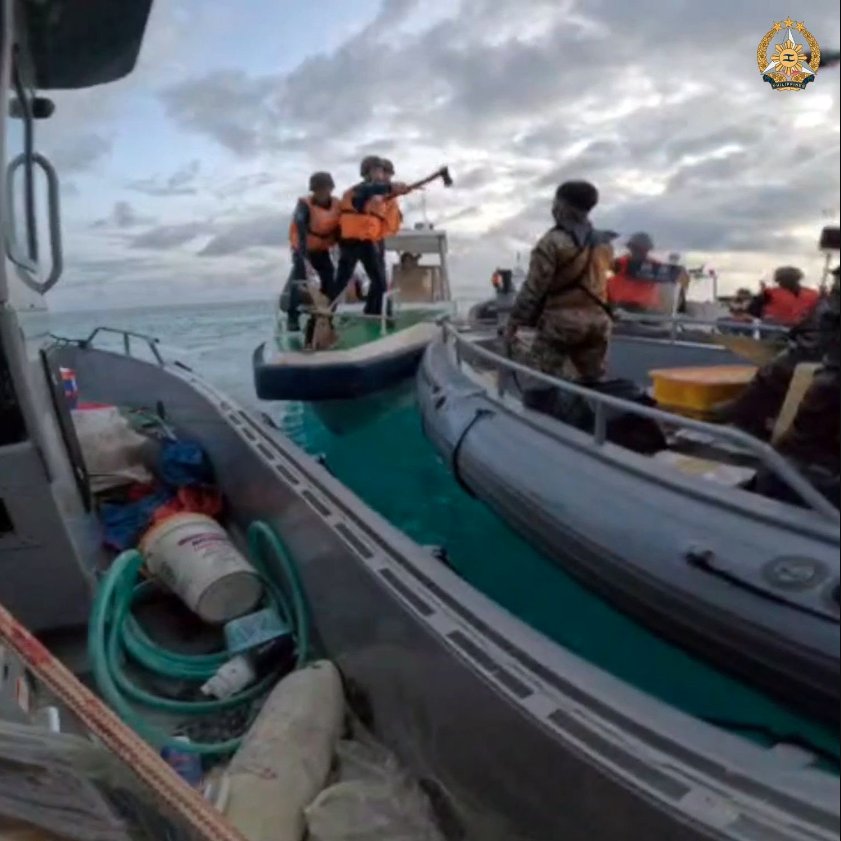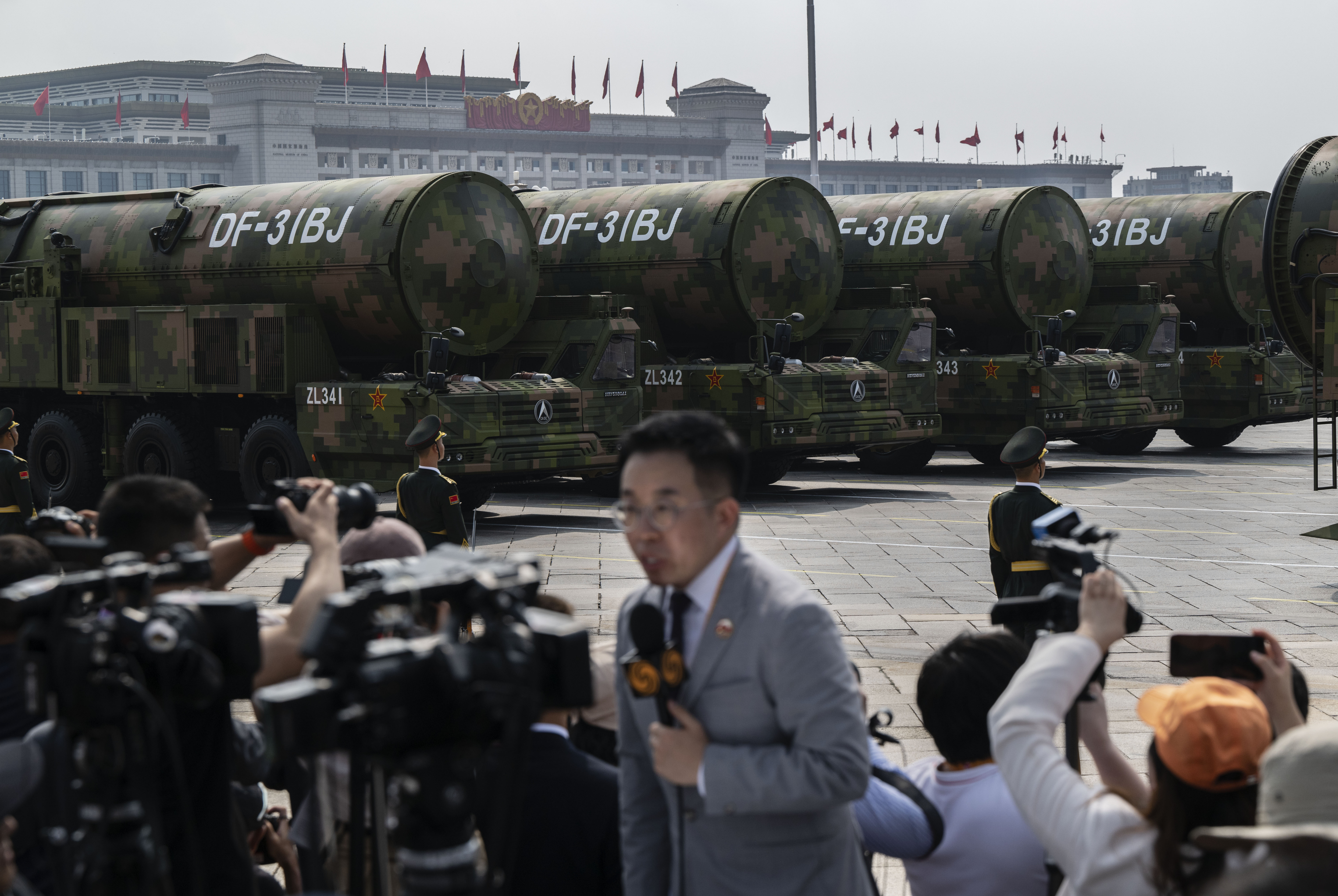
New China Coast Guard Regulation Buttresses PRC Aggression in the South China Sea
New China Coast Guard Regulation Buttresses PRC Aggression in the South China Sea
Executive Summary:
- The new “Regulation of the China Coast Guard (CCG) Organization on Enforcing Law and Order” formalizes the increasingly assertive actions taken by Chinese forces in parts of the South China Sea (SCS), empowering the CCG to detain foreign vessels and persons for up to 60 days (Art. 257) and to implement temporary maritime “warning zones” (Art. 35) for purposes such as “military use of the sea.”
- Assertive behavior by the CCG this week has led to several injuries of Philippines sailors, as the PRC continues to violate its obligations under UNCLOS while pushing the envelope on the US–Philippines Mutual Defense Treaty.
- PRC assertiveness in the SCS has been on a constant upward trend for decades, but the current flashpoint with the Philippines is the most serious moment in the last decade.
- That the PRC will continue to pursue its strategy to become a “maritime great power” is reflected in its rhetoric, for example warning others that “infringement or provocation is futile.
On June 15, a new China Coast Guard (CCG; 中国海警) regulation titled the “Regulation of the CCG Organization on Enforcing Law and Order (海警机构行政执法程序规定)”came into force, having been passed one month prior (CCG, accessed June 21). Across 16 chapters and 281 articles, it builds on the 2021 CCG Law (海警法) and formalizes the increasingly assertive actions taken by Chinese forces in parts of South China Sea (SCS) since last Fall (Xinhua, January 22, 2021).
Physical coercive actions by CCG vessels and crew members within the Exclusive Economic Zone (EEZ) of the Philippines this week—waters that the PRC claims are part of its “blue national territory (蓝色国土) signal a new high water mark in the current escalatory trajectory (Xinhua, September 11, 2021). Beyond dangerous use of water cannon (which injured several Philippine mariners in March), ramming, and blocking maneuvers, other actions in the latest fracas were new. These include the first “boarding inspection” by PRC sailors, and the use of axes to puncture rigid-hulled inflatable boats that were later towed away (see Twitter/@jaytaryela, June 21). At least eight Philippines sailors were injured, with one losing a thumb (CCG, June 17; USNI News, June 19). Despite this flurry of aggressive activity from the PRC side, questions remain about its objectives, the timing of this phase of escalation, and whether or not any recent or perhaps imminent behavior might fall under the definition of an “armed attack” under Article V of the US-Philippines Mutual Defense Treaty (US DoS, August 2, 1951.)
PRC Historic Claims Contradict International Law
PRC assertiveness in the SCS has been the norm for decades. A 2022 report that uses a novel dataset to argue that, between 1970 and 2015, “increasing Chinese assertiveness [was] a basic continuity,” noting that there were only four years in this period in which the PRC “did not engage in some form of new, increased, or expanded assertive activity.” The most recent such year was 1990 (NBR, May 2022).
PRC claims are encapsulated in the “nine-dash line,” clarified in a 2009 submission to the UN in which the PRC stated that it has “indisputable sovereignty over the islands in the South China Sea and the adjacent waters, and enjoys sovereign rights and jurisdiction over the relevant waters as well as the seabed and subsoil thereof” (UN, 2009). The nine-dash line—recently expanded to a ten-dash line in a feat of “cartographic expansionism” (China Brief, October 6, 2023)—overlaps with the maritime claims of six other governments: the Philippines, Vietnam, Taiwan, Malaysia, Brunei, and Indonesia. The PRC has been treating this entire expanse as its own jurisdictional waters since the 1980s (NBR, May 2022).
In 2016, the Permanent Court of Arbitration (PCA) at the Hague ruled against the PRC and in favor of the Philippines, finding that the PRC’s “historic rights” to the SCS were contrary to UNCLOS, of which the PRC is a signatory (PCA Cases, July 12, 2016). In response, the PRC has declared the tribunal’s arbitration “illegal, null and void. It is nothing more than a piece of waste paper” (PRC Embassy to Turkey, July 12, 2021). The PRC has thus continued to act in defiance of the ruling, with minimal pushback. This is in part because sovereignty claims are outside UNCLOS’s scope of jurisdiction (CRS, August 21, 2023).
New Powers Enhance Scope for PRC Activity in SCS
The PRC’s 2021 Coast Guard Law expanded the scope under which CCG can use weapons to include their use against foreign organizations (MND, January 22, 2021). It also omitted a definition of “waters under the jurisdiction of China,” though an earlier draft stated that these included undefined “other waters” (Lawfare, February 16, 2021). These developments have provided the legal basis for transforming the CCG into an organization whose mission includes national defense. In terms of force structure, the CCG is under the People’s Armed Police, which in turn is under the unified command of the Central Military Commission. This has led to increased collaboration with the PLA, including the transfer of retired PLA Navy ships and former PLA Navy officers to the CCG (Japan MOD, accessed June 20).
The new regulation builds on the 2021 law, as well as on two criminal procedure regulations from 2023 (MFA, May 15). CCG actions this week such as “forced towing (强制拖离)” that were sanctioned in the 2021 law are now supplemented with powers to detain foreign vessels and persons for up to 60 days (Art. 257), and to implement temporary maritime “warning zones (警戒区)” (Art.35) for purposes such as “military use of the sea.” [3] As with the 2021 law crucial definitions remain deliberately vague. [2] This includes definitions of “waters under China’s jurisdiction” as well as the scope of the use of force, which includes “other law enforcement actions (…等法律)” (Art. 2). The regulation also does not acknowledge the sovereign immunity under international law of foreign vessels operated by foreign governments. While the PRC claims these waters as its own territory, these claims are not recognized in international law. As such, this plausibly constitutes an additional and illegal extraterritorial application of PRC law.
Statements by PRC officials and state media outlets provide an additional angle on how the PRC views actions by the Philippines within what it perceives as its own “indisputable” territory. CCG spokesman Gan Yu (甘羽) has made statements affirming that the CCG will “continue to carry out rights defense and law enforcement activities in waters under China’s jurisdiction” and warning that “any form of infringement or provocation is futile (任何形式的侵权挑衅都徒劳无益)” (CCG, May 20; CCG, June 17). He described CCG actions as taking “control measures such as warning and blocking, boarding and inspection, and forcible removal of the Filipino vessel (警告拦阻、登临检查、强制驱离等管制措施),” all of which were “reasonable, lawful, professional and standardized” (CCG, June 17). State media outlet CCTV noted that the language on forcible removal (“强制驱离”) was new, while also framing the Philippines’ actions provocatively as a “pre-dawn invasion (凌晨侵闯)” (CCTV News, June 19).
Some scholars have echoed the government’s strident rhetoric. In April, Zhao Hongwei (赵宏伟), a former researcher at the PLA’s Academy of Military Sciences, avowed in an article that “this summer should be the time for action (行动时机,应该选在今夏)” in the SCS (Wechat/Haiwai Kan Shijie, April 15). He envisions overcoming the Philippines’ claims to allow an “East Asian Community of Shared Destiny” to emerge. Zhao’s views have been characterized as “provocative” and “closer to the extremes,” but the CCG’s actions since penning his article suggest that parts of the military command structure have similar views (Sinification, June 1). Other comments, such as journalists praising Coast Guard crew shouting across the water “this is China. Go back to the Philippines,” or social media comments calling for the use of force, also suggest that these views are fairly common (Twitter/XH_Lee23, June 20).
Zhao’s views also echo longstanding ambitions for the PRC’s maritime strategy. The PRC has long desired to become a “maritime great power (MGP; 海洋强国).” In 2003 for instance, Hu Jintao led a politburo study session that found that maritime power had historically been key to the rise of great powers. He subsequently inserted language about MGP in the Work Report to the 18th Party Congress in 2012. MGP has an expansive definition, a core component of which is the PRC’s maritime strategic interests. These include national sovereignty, security, and development (Naval War College Review, Spring 2018; Qiushi, August 31, 2017). Xi has built on his predecessor’s foundations, consistently stating that maritime strategy is integral to broader strategic goals such as achieving national rejuvenation by 2049 (see for example, NDRC, March 7) .
PRC Actions Draw Condemnation, Limited Response
The drama of the last week may not be unprecedented in the SCS, but it has exceeded conduct seen in recent years in terms of severity. It is unclear what has prompted these developments. More immediately, escalation this week may be in response to Manila’s submission to the UN to register its extended continental shelf (ECS) in the Western Palawan region in the West Philippine Sea, which the PRC foreign ministry has criticized (PNA, June 15; Xinhua, June 16). Given the uptick in activity since the 2021 law entered into force and the continual ratcheting up of pressure over the last five decades, recent assertiveness should be seen as the increasingly forceful execution of long-standing policy.
The Philippines has been steadfast in its public statements. The Philippines’ Department of foreign Affairs has criticized the PRC for “ blatant escalation of tensions” (DFA, May 26). Three years ago, President Duterte stated that “no amount of willful disregard by any country, however big and powerful, can diminish the arbitral award’s importance” (PNA, September 22, 2021). His successor, Ferdinand “Bongbong” Romualdez Marcos Jr., more recently called out the PRC for “illegal, coercive, aggressive, and deceptive actions” that “continue to violate [the Philippines’] sovereign rights and jurisdictions” (IISS, May 31). This week, General Romeo Brawner Jr, the chief of staff of the Philippines armed forces, likened PRC behavior to “piracy” (USNI News, June 19). The CCG’s actions do not fit international legal definitions of piracy, as they are acting under the command of a state (UN, accessed June 20). The United States has also condemned the PRC for its destabilizing actions, though so far it has stopped short of providing material assistance to its treaty ally.
Conclusion
There have been several instances in which, following international agreements and rulings, the PRC has decreased its assertiveness in the SCS. This happened following the UNCLOS ruling in 2016, when Philippine vessels were able to fish in Scarborough Shoal without interference for the first time since 2012. It also occurred following the signing of the Declaration on the Conduct of Parties in the South China Sea (DOC), when military activity from the PRC became notably less common between 2004 and 2008 (NBR, May 2022). In each case however, there has been only temporary reprieve to any largesse. PRC assertiveness has in effect operated as a one-way ratchet for decades, with each new attempt to push the boundaries forming the basis for subsequent expansion. This suggests that it will continue to find ways to escalate and enforce its maritime claims unless Party leaders perceive significant reasons not to pursue its current longstanding strategic objectives. PRC understanding of power in the SCS has changed little from the framing of former Foreign Minister Yang Jiechi, who stated at the ASEAN Regional Forum in 2010 that “China is a big country and other countries are small countries and that is just a fact.”
Notes
[1] While this week may have seen the first instance of towing, it should be noted that in 2016 a US Navy unmanned buoyancy glider was taken by PLA forces in international waters (USNI, December 16, 2016).
[2] This is the case for many other PRC laws of concern. For instance, see China Brief, March 1.


